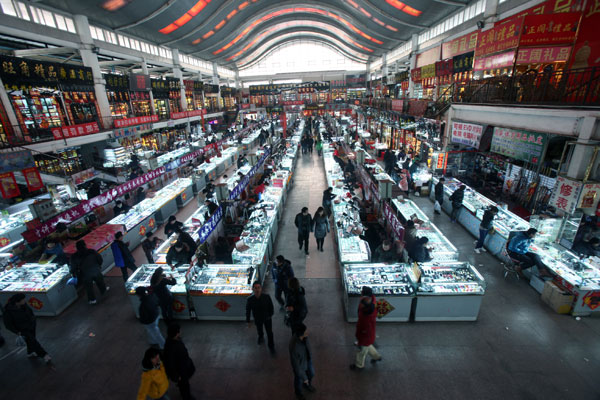Buying luxury items is a brand-new success story
Updated: 2012-02-20 10:22
By Tang Yue (China Daily)
|
|||||||||||
Designer labels are in fashion and easier for domestic customers to purchase now than at any time before, Tang Yue reports from Tianjin and Beijing.
Zhang Xiuhua ran a stall at the Exotic Cargo Market in Tianjin when it was at its peak.
"I had to get up at 3 am just to get a good booth on weekends," she recalled.
"The street was packed with customers from everywhere. It attracted far more people than any department store."
That was in the early to mid-1990s, when the market was the go-to place in North China for secondhand clothes and other goods smuggled from overseas.
By the end of the decade, the glory days were already over; crackdowns by customs authorities had severed supply chains, while brand-new foreign products were becoming readily available throughout the mainland.
Yet, as the Tianjin market declined, demand among Chinese shoppers for imported - especially high-end - goods has only grown stronger, with experts predicting that the country will this year overtake Japan as the world's largest luxury market.
More than 100 billion yuan ($15.88 billion) was spent on luxury products on the mainland last year, a year-on-year increase of about 25 percent, according to data released by management consultants Bain & Co.
The figure is a far cry from the 5 billion yuan recorded in 1998, when trade at the Exotic Cargo Market was starting to wind down.
Today's Top News
President Xi confident in recovery from quake
H7N9 update: 104 cases, 21 deaths
Telecom workers restore links
Coal mine blast kills 18 in Jilin
Intl scholarship puts China on the map
More bird flu patients discharged
Gold loses sheen, but still a safe bet
US 'turns blind eye to human rights'
Hot Topics
Lunar probe , China growth forecasts, Emission rules get tougher, China seen through 'colored lens', International board,
Editor's Picks

|

|

|

|

|

|






